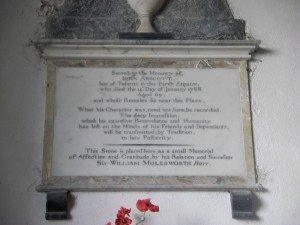Contact Us
By email:
info@one-place-studies.org
By post:
Society for One-Place Studies,
28 St Ronan’s Avenue,
Southsea, Hampshire, PO4 0QE
United Kingdom
Wills can reveal an enormous amount about the circumstances of the people who lived in your place, telling you where they lived, the property/ies they owned and often confirming relationships between several people. Recording what a person wanted to happen to his/her possessions after death, wills were sometimes written in simple terms whereas on other occasions, they can be very detailed to the point that one husband only left his wife a farthing because she called him a 'rotten old pig' and another man bequeathed £26,000 to Jesus Christ - but only if He could prove His identity [Source: Daily Mail, 30 March 2015].
In the Middle Ages, land was the main form of wealth and the law stated that it was inherited automatically by the deceased’s heir, i.e. the man’s eldest surviving son. The law also stated that a man’s widow should automatically be entitled to a third of their ‘estate’, i.e. their property such as money, goods, chattels, furniture etc., and his children should share another third. After this, there might be some left for other relatives.... or whoever the deceased chose to leave the remainder of his estate.
The will of the Reverend John Rouse of the parish of Tetcott was proved in London in 1818 and within it he stated that he ‘give unto the Rector and Churchwardens of the Parish of Tetcott and their successors for the time being ... the sum of fifty shillings a year upon trust to be lain out in bread for the poor of Tetcott aforesaid and distributed every Christmas’... He also leaves money to his maidservant and what appears to be a ‘prentice’ boy, both named, as well as numerous members of his family who are all referred to by name, relationship and frequently, occupation too.
 Wills were not only written by men. Thomazin Arscott of Tetcott - the ‘widow and relict’ of John Arscott of Tetcott - went into great detail regarding where she wished to be buried and who should inherit her property: ‘be decently interred in a ... coffin and in as private a manner as can possibly be in the vault wherein my late dear husband is buried in the parish church ... having obtained the permission of Sir William Molesworth Baronet ... I give to my nephew the Reverend William Tickell and Catharine his wife the use of my silver tea urn and silver stand of cruets...’.
Wills were not only written by men. Thomazin Arscott of Tetcott - the ‘widow and relict’ of John Arscott of Tetcott - went into great detail regarding where she wished to be buried and who should inherit her property: ‘be decently interred in a ... coffin and in as private a manner as can possibly be in the vault wherein my late dear husband is buried in the parish church ... having obtained the permission of Sir William Molesworth Baronet ... I give to my nephew the Reverend William Tickell and Catharine his wife the use of my silver tea urn and silver stand of cruets...’.
On the passing of John Arscott - more than likely, the one above! - who died childless in 1788, Tetcott estate was inherited by his distant relation, Sir William Molesworth. With their main family seat being at Pencarrow in Cornwall, the Molesworths considered the grandiose mansion superfluous, and it was dismantled by Sir William's grandson (also named William) in 1831.
A mine full of useful information these wills!
Kirsty Gray
Janet Few